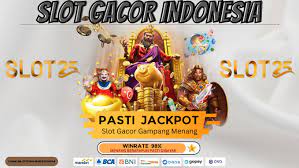Introduction:
Lotteries have been captivating the human imagination for centuries, offering the tantalizing prospect of turning a modest investment into a life-changing fortune. Whether it’s the thrill of the draw, the dream of financial freedom, or the sheer luck of the numbers, lotteries have become a global ibutogel, with millions of people participating in the hopes of hitting the jackpot. This article explores the history, mechanics, and the allure of lotteries, shedding light on the cultural and psychological aspects that make them an enduring and fascinating phenomenon.
A Historical Journey:
The roots of the lottery can be traced back to ancient times. Some of the earliest recorded lotteries date back to the Han Dynasty in China around 205 BCE, where the proceeds were used to fund public projects, including the construction of the Great Wall. Throughout history, lotteries have been employed by governments, monarchs, and organizations as a means of generating revenue for public services, infrastructure, and charitable causes.
Modern Lotteries:
In the modern era, lotteries have evolved into a diverse array of games, each with its own set of rules, odds, and prize structures. From national and state lotteries to scratch-off tickets and online draws, the variety of options available today caters to a broad spectrum of players. Popular lotteries, such as Powerball and Mega Millions in the United States, the EuroMillions in Europe, and various national lotteries around the world, regularly capture the public’s attention with their eye-watering jackpots.
Mechanics of the Draw:
Lottery draws typically involve selecting a set of numbers from a pool of possible combinations. The method of drawing varies, ranging from traditional ball-drawing machines to computerized random number generators. The suspense and excitement of the draw, as well as the universal dream of seeing one’s chosen numbers align with those selected, contribute to the enduring popularity of lotteries.
The Allure of the Jackpot:
The allure of lotteries lies in the potential for life-altering wins. The dream of winning a massive jackpot and achieving financial freedom overnight has a powerful psychological impact, driving people from all walks of life to participate. The notion of “What if I win?” fuels a sense of hope and optimism, creating a shared experience that transcends cultural and socio-economic boundaries.
Cultural Impact:
Lotteries have permeated popular culture, becoming the subject of literature, movies, and even art. Stories of rags-to-riches transformations, as well as cautionary tales of lottery winners who faced unexpected challenges, add layers of intrigue to the narrative surrounding lotteries. The cultural impact extends beyond entertainment, with lotteries contributing to public discourse on wealth distribution, taxation, and social responsibility.
Responsible Gaming:
While the allure of the lottery is undeniable, it is crucial to approach participation with a sense of responsibility. Lottery games are, by nature, games of chance, and the odds of winning are typically low. Responsible gaming practices involve setting realistic expectations, budgeting for entertainment purposes, and avoiding excessive spending on lottery tickets.
Conclusion:
Lotteries have entrenched themselves in the fabric of societies worldwide, offering a unique blend of chance, hope, and excitement. As participants eagerly await the results of each draw, the lottery continues to be a source of dreams and aspirations. While the prospect of winning a jackpot is undeniably enticing, it’s essential to approach lottery participation with a balanced perspective, recognizing the element of chance and embracing the experience as a form of entertainment rather than a guaranteed path to financial transformation.



